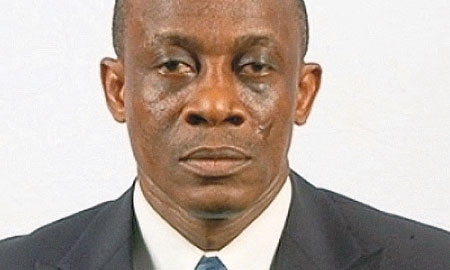“Ghana’s growth has a structural element to it, in the form of reforms that have been undertaken consistently for nearly three decades in the context of IMF and World Bank benchmarks,” says Seth Terkper, Minister of Finance. “The recipe for success is in diversifying a balanced economy. Prior to oil, the service sector grew and overtook agriculture as the largest sector in terms of growth.”
He continues: “Secondly, oil and gas discovery placed the country as a [lower] middle-income one and that is what we have to consolidate. We have to get the macro-economy right and make sure that we are not over-dependent on oil and gas as the potential is realised. So, we have to bear two things in mind: value addition and diversification of the economy.”
The government is also moving ahead with infrastructure development – and to a large extent under the private-public partnership model – in many areas, including airport, seaports, roads and rail. Most of the projects have what Mr Terkper calls commercial potential.
“If we expand our infrastructure, together with our agri-processing and export potential and the movement of goods, the facilities you construct could largely be self-financed,” he says.
“We have to bear two things
in mind – value addition, and
diversification of the economy”
Seth Terkper, Minister of Finance |
As for the financial sector itself, Ghana’s financial system assets grew 13 fold between 2000 and 2010, rising to over $16 billion. However, the minister would like to see “deeper financial services” and “structurally sound banking that would be able to tackle secondary markets for some of the tradable bonds we issue, so that when we move into
issuing corporate bonds, we should be able to create that kind of market.”
In 2009, Ghana issued a two-year bond and three years later, a five-year bond. A second sovereign bond is due to be issued soon, given the fact that the previous ones have been over-subscribed. The finance minister expects to extend the term of Ghana’s bonds further to a minimum of 10 years and refinance some of the short-term bonds that are maturing.
“If we succeed going forward, we will be able to issue commodity-backed bonds and move into energy and transportation bonds to expand port facilities. The rationale for the term of our bonds is linked to the fact that we want to do major infrastructure projects with a long gestation period – of about five to 10 years – so that we can link projects to finance, rather than depend on the markets to support our capital budgets,” explains Mr Terkper.
With Ghana putting the financial sector to the good use of economic diversification and value addition, growth is sure to continue coming naturally.

0 COMMENTS